Advancing racial equity in philanthropy in Iowa is one of the ICoF’s four strategic priorities. We welcome and encourage all of our members to join us in this journey, no matter what point you’re starting from. For those who have little to no previous experience thinking about racial equity in terms of philanthropy, we’ve assembled some of our favorite resources for you to work through at your own pace.
- We suggest you start with the recording and resources from our Fall 2020 membership meeting with Race Forward. It’s in the archives under FY2021 here.
- Race Forward’s website includes several great resources as well, including videos and tools, and this page explaining “What is racial equity?“
- The United Philanthropy Forum also has a strategic focus on advancing racial equity, diversity and inclusion in philanthropy by leveraging the power of their expanding nationwide network of regional and national philanthropy-serving organizations (PSOs). Access this Knowledge Center to access resources and learn more.
- Another good starting place is this extensive resource put together for our 2021 Racial Equity Cohort: Inventory of Racial Equity in Philanthropy Tools & Frameworks
- Book recommendation: Decolonizing Wealth: Indigenous Wisdom to Heal Divides and Restore Balance by Edgar Villanueva. You can also check out the recording of our January 2021 membership meeting with Edgar as our featured guest, and the Decolonizing Wealth website.
Resources Shared by ICoF Members of their own work:
- Community Foundation of Greater Dubuque — DEI Toolkit
Additional Resources for learning about racial equity, with a focus on Iowa:
Articles
The Center for Public Integrity — The racist history that helps explain our present wealth gap
By Jamie Smith Hopkins. Published 3/15/22.
We delved into Waterloo, Iowa, for a podcast about the country’s racial wealth gap. What we saw included two types of real estate racism that played out coast to coast in the United States. Both erected barriers to wealth-building that still hurt people today, Black families especially, decades after the practices were declared illegal.
Grout Museum District — The History of Waterloo: A Case Study of Race Relations
By Pat Kinney. Published 1/28/21.
Despite Iowa’s seeming homogeneity, the history of Waterloo, Iowa is a microcosm and case study of race relations in many northern U.S. cities.
Iowa Citizens for Community Improvement — Rooted in Racism — The Unspoken History of Our Food & Farm Systems
By Keisha Perkins, Abigail Landhuis, Mackenzie Aime.
As we reflect as a nation on the systemic racism in our institutions, we must also recognize and confront racism in every aspect of U.S. policy, including the agricultural policies that underpin our food and farm systems.
Little Village Magazine — The ‘demure white supremacy of the Midwest’
By Donna Cleveland. Published 1/6/21.
Beneath a veneer of “niceness,” the Midwest is among the very worst places to live in the United States if you’re a person of color. That’s what historian and University of Iowa history professor Colin Gordon discovered while completing a report for the Iowa Policy Project titled “Race in the Heartland: Equity, Opportunity, and Public Policy in the Midwest.”
Audio clips / Podcasts
Iowa Public Radio — Understanding the History of Systemic Racism in Iowa
By Clay Masters. Published 12/14/20. 4m:49s
Black Lives Matter protests following the death of George Floyd this year brought heightened awareness to systemic racism and social justice across the country, including in Iowa. But Black leaders in Iowa have been working to combat the issue here for decades. One of those leaders is Betty Andrews. She’s president of the Iowa-Nebraska NAACP.
Videos
Iowa PBS Documentary — Telling Our Own Story: Racism and Its Impact
Originally aired 6/6/22. 23m:18s
Examine the economic, geographic and financial history of racism in Iowa and its impact today. Explore racism’s presence in universities, agriculture and cities, and discover how it’s seen, how it’s normalized, and how we can work on reversing it.
Websites
Beloved Community Initiative (Episcopal Diocese of Iowa) — Map: History of Race in Iowa
“We will take tangible and enduring actions towards healing the sins of slavery, indigenous genocide and displacement, and racism through earnest and sacrificial actions. One of those actions is to review and share the history of Iowa’s and our churches’ part in benefiting from the legacies of slavery and indigenous genocide and displacement. This digital, interactive mapping project is part of that work.”

